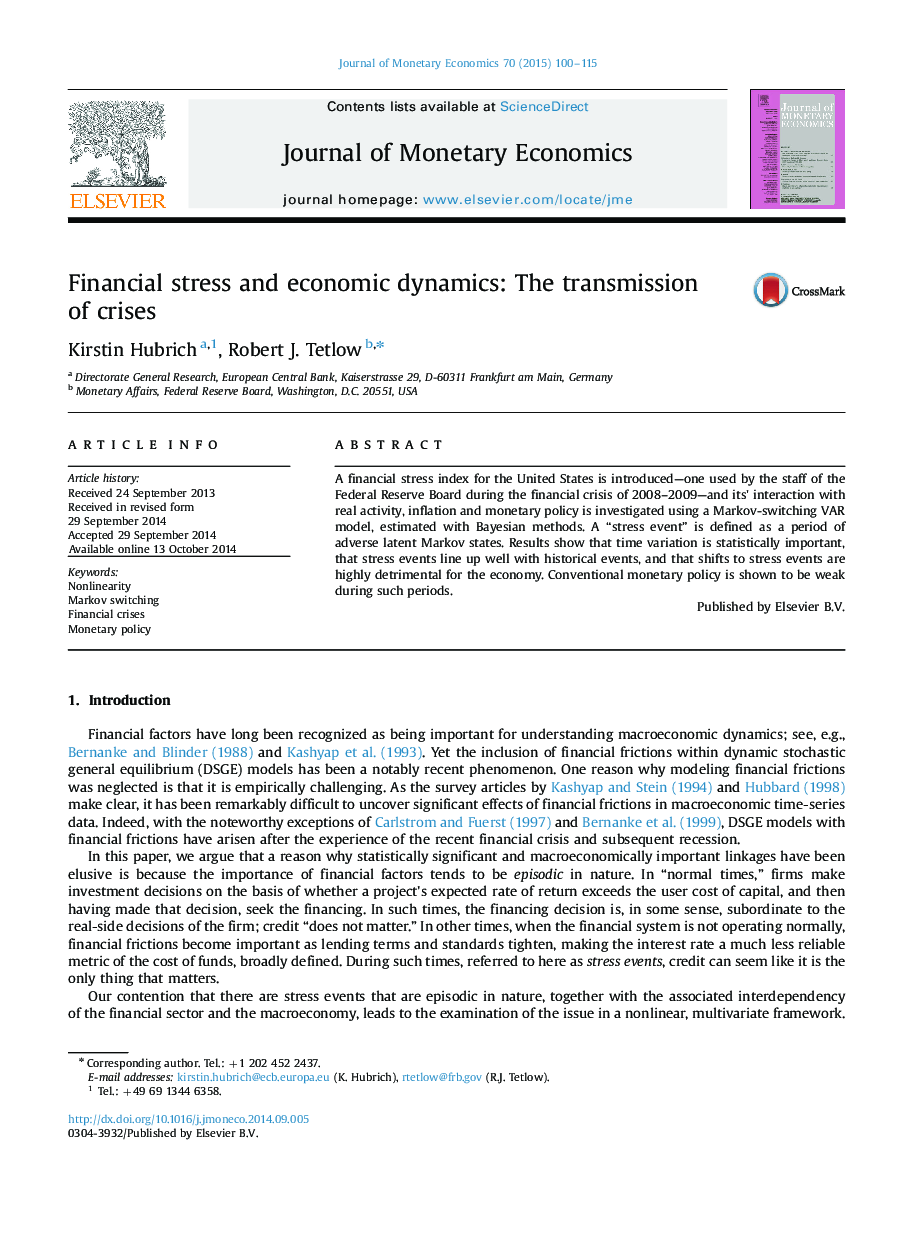| Article ID | Journal | Published Year | Pages | File Type |
|---|---|---|---|---|
| 966501 | Journal of Monetary Economics | 2015 | 16 Pages |
Abstract
A financial stress index for the United States is introduced-one used by the staff of the Federal Reserve Board during the financial crisis of 2008-2009-and its׳ interaction with real activity, inflation and monetary policy is investigated using a Markov-switching VAR model, estimated with Bayesian methods. A “stress event” is defined as a period of adverse latent Markov states. Results show that time variation is statistically important, that stress events line up well with historical events, and that shifts to stress events are highly detrimental for the economy. Conventional monetary policy is shown to be weak during such periods.
Related Topics
Social Sciences and Humanities
Economics, Econometrics and Finance
Economics and Econometrics
Authors
Kirstin Hubrich, Robert J. Tetlow,
